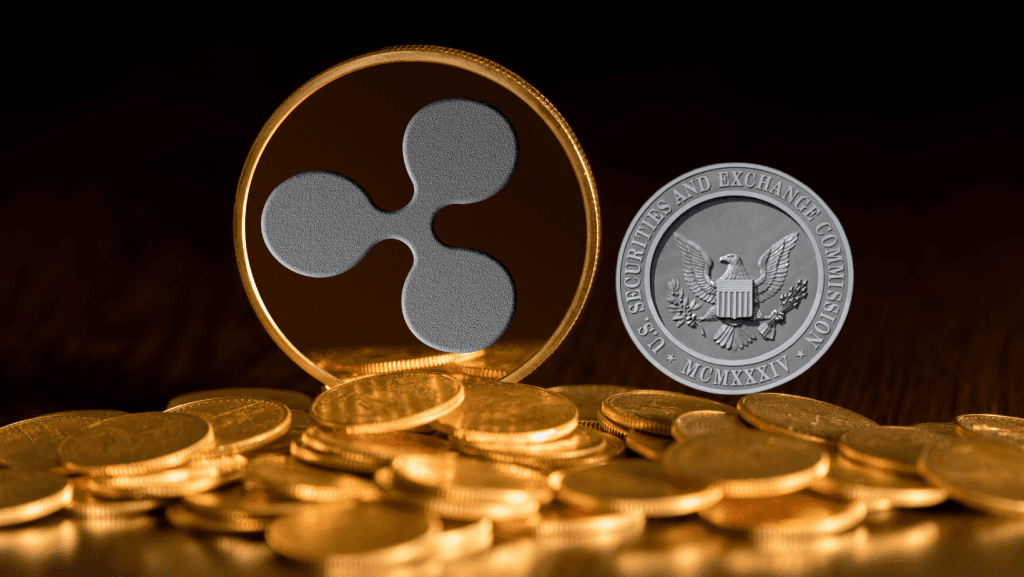In a landmark ruling that has sent ripples through the cryptocurrency industry, Ripple Labs scored a partial win against the U.S. Securities and Exchange Commission (SEC) over its XRP token. This decision has not only impacted Ripple but also set a precedent that may influence other crypto firms fighting SEC litigation. The ruling has ignited discussions, debates, and even controversies within the legal and crypto communities. It’s a case that has been closely watched, not just for its immediate impact on Ripple and XRP but for its broader implications on the regulatory landscape of cryptocurrencies. In this article, we’ll delve into the intricate details of this case, explore its multifaceted implications, and attempt to understand what it means for the future of cryptocurrency regulations.
The Ruling: A Mixed Bag for Ripple and the Crypto Industry
Ripple’s fight with the SEC reached a significant milestone when the U.S. District Court of the Southern District of New York ruled that the sale of Ripple’s XRP tokens on exchanges and through algorithms did not constitute investment contracts. However, the institutional sale of the tokens did violate federal securities laws. This mixed ruling has opened up a Pandora’s box of legal interpretations, potential appeals, and future regulatory actions.
The court’s decision has been seen as both a victory and a setback for Ripple, depending on the perspective. It has also sparked a renewed interest in the ongoing debate about how cryptocurrencies should be regulated and classified under the law. The ruling has far-reaching implications not only for Ripple but for the entire crypto industry, potentially affecting how other cryptocurrencies are treated by regulators.
Ripple’s Victory and Its Implications
The court’s decision was a partial win for Ripple against the SEC, as it clarified that “programmatic sales” of XRP through exchanges and algorithms did not qualify as the sale of securities. This ruling has brought a degree of regulatory clarity to the crypto industry, with XRP rallying on the news.
The court’s order also shed light on Ripple’s institutional sales, which amounted to around $728.9 million. These sales were found to be in violation of federal securities law, as investors were deemed to have purchased XRP with the expectation of profiting from Ripple’s work.
This ruling has far-reaching implications for Ripple and the broader crypto industry. It sets a precedent that may influence how other cryptocurrencies are treated by regulators. It also raises questions about the future of crypto regulation and how the SEC may approach similar cases in the future.
The victory for Ripple is not just about XRP; it’s about the broader question of how cryptocurrencies are classified and regulated. It’s a complex issue that goes to the heart of what cryptocurrencies are and how they should be treated under the law.
The Impact on Other Crypto Firms
This ruling may augur well for other cryptocurrency firms facing litigation from the SEC. Exchange platforms like Coinbase, Binance, and Bittrex, which have been targeted by the SEC for operating unregistered trading platforms, may find this ruling a helpful precedent.
However, some legal experts argue that the summary judgment may rest on shaky ground and may not translate to a significant change in the way the crypto industry is treated by the SEC. The ruling’s impact on other crypto firms is still uncertain, and it may take time to see how it plays out in other legal battles.
The ruling has also sparked discussions about the need for clearer regulations and guidelines for the crypto industry. It highlights the challenges and complexities of regulating a rapidly evolving and highly innovative industry. It also underscores the need for a balanced approach that protects investors without stifering innovation.
The impact of this ruling on other crypto firms is likely to be felt for years to come. It may influence how other cases are argued and decided, and it may lead to new regulations and guidelines that shape the future of the crypto industry. It’s a ruling that has opened up new questions and challenges, and it’s one that will continue to be analyzed and debated by legal experts, regulators, and industry stakeholders.
The Security Dilemma: Ripple’s Case and Beyond
Ripple’s partial victory in the SEC lawsuit has brought to the forefront the complex issue of classifying cryptocurrencies as securities or commodities. The court’s ruling that XRP’s programmatic sales were not securities but that institutional sales were, has left many puzzled. This paradoxical ruling has ignited debates and raised questions about the nature of cryptocurrencies and how they should be regulated.
The dilemma extends beyond Ripple. The recent lawsuits against Coinbase and Binance, two of the largest cryptocurrency exchanges, are prime examples of the regulatory challenges faced by the industry. In August 2023, the SEC sued Coinbase, alleging that the exchange was operating unregistered trading platforms. Coinbase has since moved to dismiss the lawsuit, arguing that crypto falls outside the regulator’s oversight.
The Ripple ruling may have implications for these cases, as it sets a precedent that could influence how cryptocurrencies are classified and regulated. The mixed ruling in Ripple’s case may provide legal ammunition for exchanges like Coinbase and Binance in their battles with the SEC. However, the complexity of the issue and the unique nature of each case mean that the impact of the Ripple ruling on other lawsuits is still uncertain.
The Positive Impact on the Cryptocurrency Space
The Ripple ruling has been widely seen as a positive development for the cryptocurrency industry. By clarifying that programmatic sales of XRP were not securities, the court has provided some much-needed regulatory clarity. This has boosted investor confidence and led to a surge in XRP’s price.
The ruling also sends a signal that the courts are willing to take a nuanced and balanced approach to crypto regulation. It recognizes the unique nature of cryptocurrencies and the need for regulations that protect investors without stifling innovation.
The positive impact extends beyond Ripple and XRP. It may encourage other crypto firms to fight regulatory actions, and it may lead to more balanced and nuanced regulations that recognize the unique characteristics of cryptocurrencies.
A New Chapter in Crypto Regulation
The Ripple lawsuit and the subsequent ruling mark a new chapter in crypto regulation. It’s a landmark case that has set a precedent, provided some clarity, and opened up new questions and challenges.
The ruling has positive implications for the industry, but it also highlights the ongoing challenges and uncertainties. The lawsuits against Coinbase and Binance, and the complex issue of classifying cryptocurrencies as securities or commodities, are examples of the challenges that lie ahead.
The Ripple ruling is not the end of the story; it’s the beginning of a new chapter. It’s a chapter that will be written by regulators, legal experts, industry stakeholders, and innovators. It’s a chapter that will shape the future of the crypto industry and define how cryptocurrencies are regulated, traded, and used.
The Ripple case is a reminder that the crypto industry is still young, evolving, and full of potential. It’s an industry that needs clear, balanced, and innovative regulations that recognize its unique nature and potential. It’s an industry that is ready to work with regulators to create a fair, transparent, and thriving ecosystem.
The Ripple ruling is a step towards that future, and it’s a step that has been welcomed by many in the industry. It’s a key that has opened up new possibilities, new challenges, and new opportunities. A spark that has ignited debates, sparked innovation, and inspired hope. And Also, a light that marks the beginning of a new chapter in crypto regulation, a chapter that is full of promise, potential, and possibilities.









